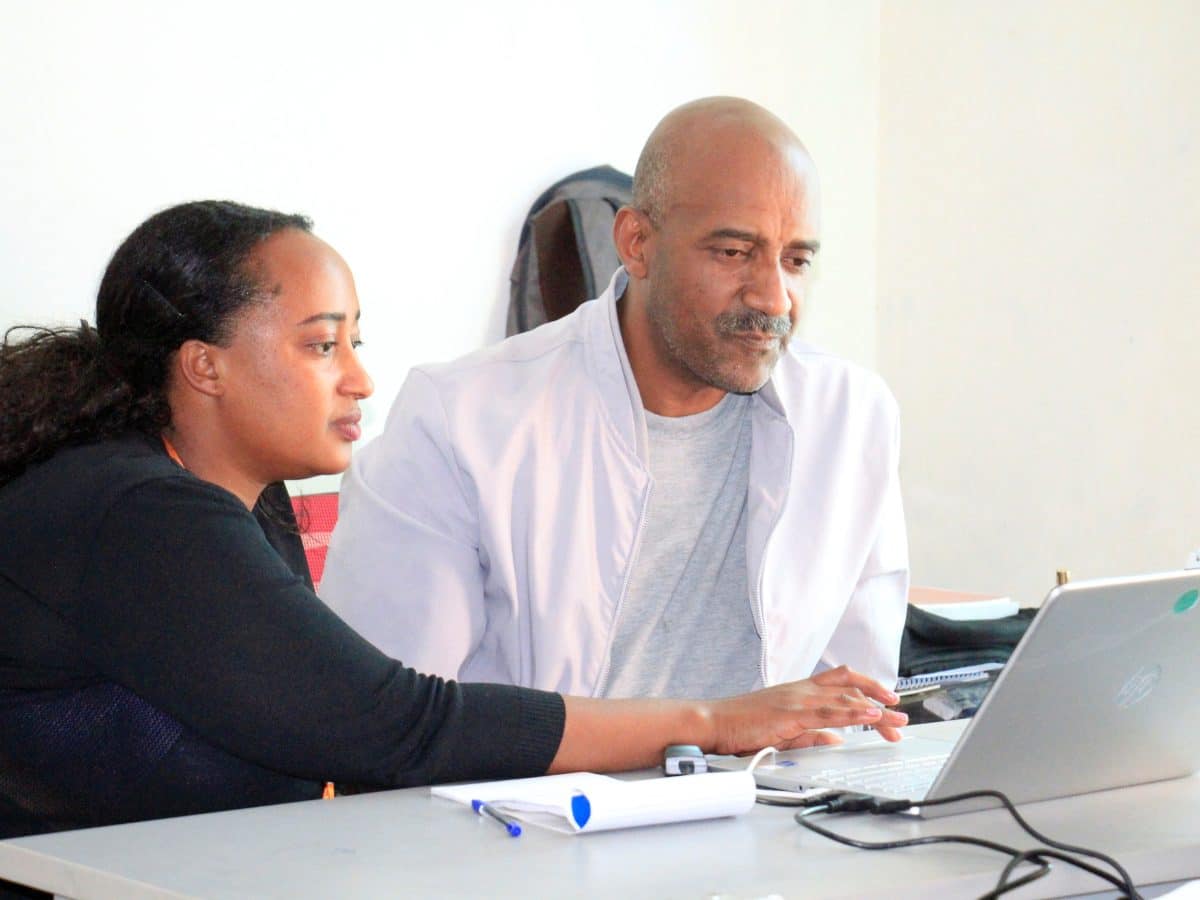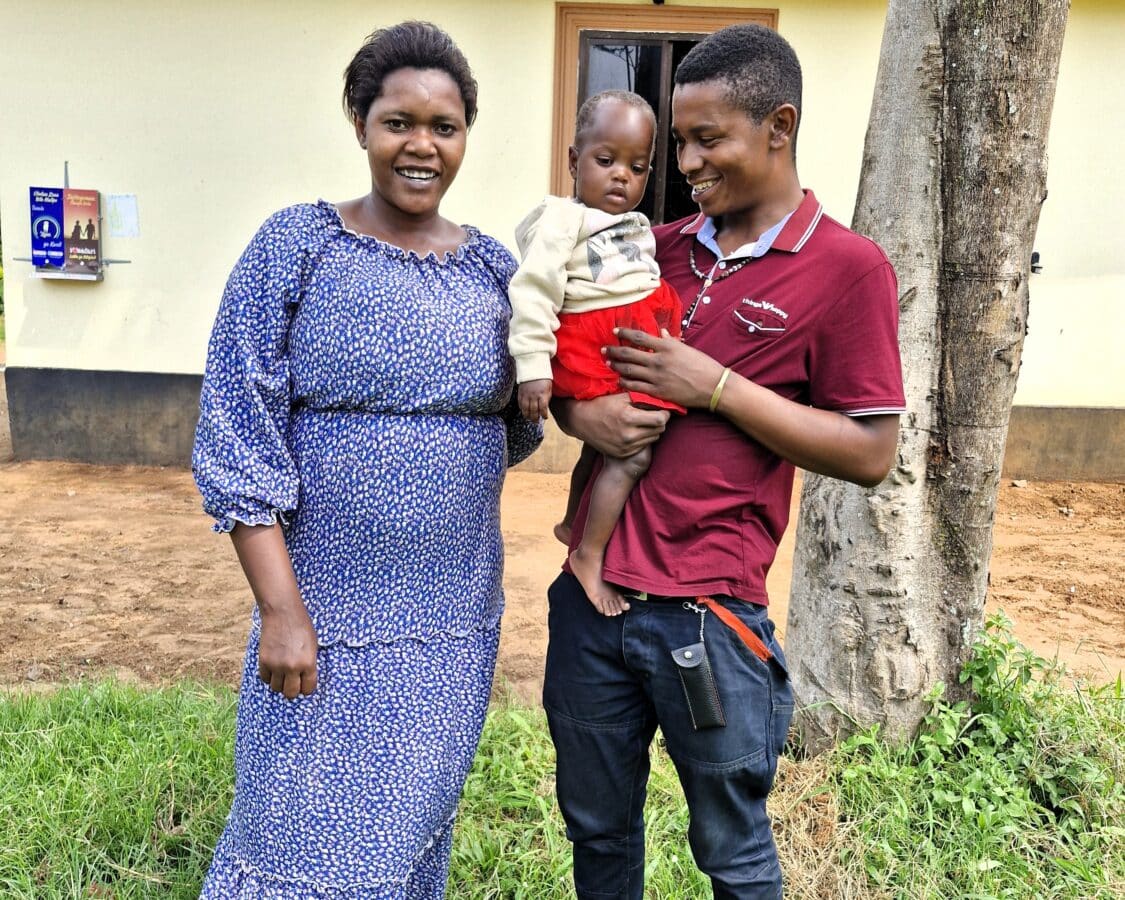“Mental illness is common around the world, but until recently such conditions were not widely recognized in low-resource countries and there was little to offer those who suffered from them,” said Francine Cournos, senior project officer for adherence, psychosocial support, and mental health at ICAP. One of the major challenges of the work has been diagnosing when a mental disorder is present. Cournos explained, “In resource-limited countries, there is less awareness of common mental illnesses like major depression and anxiety disorders. Psychotic illnesses, which manifest with obviously disturbed behavior, are easier to recognize.”
To respond to the challenge of HIV and mental illness, ICAP is supporting efforts to raise awareness of these conditions and enable effective response to dually affected individuals.
Information from Ndera Neuropsychiatric Hospital, the key referral hospital in Rwanda for mental health, suggests that severe mental disorders in Rwanda include many of the same disorders that challenge patients and providers in resource-rich settings. According to a 2010 annual report from Ndera, 51 percent of the patients are diagnosed with schizophrenia and other psychotic disorders, 24 percent with bipolar disorders, 10 percent with severe depression, and 5 percent with substance use.
In many countries in sub-Saharan Africa, mental health has received less priority, largely due to other, often more life-threatening health issues such as communicable diseases, perinatal conditions, and nutritional deficits. Recently, the threat of non-communicable diseases in low and middle-income countries has also been acknowledged, however, mental illness—which is associated with significant morbidity—has received limited attention globally.
In the context of HIV, various challenges arise when considering how to integrate HIV and psychiatric services. For example, healthcare workers require knowledge and skills in the co-management of the two conditions; mental health clinicians need to appreciate the interactions between psychiatric medications and antiretrovirals; and HIV clinicians need to learn how to screen for mental disorders. An integrated approach is ideal to meet the needs of the patients.
Another complication is that HIV-infected patients can manifest disturbed behavior due to HIV-related complications. In these situations, healthcare workers may mistake such behavior for a psychotic disorder when in fact there is another cause. Cournos explained, “Kidney failure, metabolic disturbances, high fever or dehydration can do this. Training in distinguishing these conditions from psychiatric illnesses is very important.”
Post-traumatic stress disorder (PTSD) is also a concern. After the 1994 genocide, substantial numbers of individuals in Rwanda experienced some form of PTSD and depression. Recent research by Naasson Munyandamutsa in 2009 found that 29 percent of Rwandans have symptoms of chronic PTSD and the majority of them experience depressive symptoms.
Isaie Nzeyimana, who worked as a clinical advisor with ICAP in Rwanda during the formative stages of its mental health initiative, explained, “From April to July, Rwandese mark the anniversary of the genocide–this is a difficult time for the nation. People are reliving what happened from April to June 1994.” Alfred Ngirababyeyi, a clinician at Ndera, added, “During the genocide commemoration periods, we see an increase in manifestations of stress and trauma consistent with acute PTSD.”
ICAP’s efforts to integrate mental health and HIV services began in 2008, with its support of HIV care and treatment services at Ndera Neuropsychiatric Hospital. Ndera is one of 57 sites that have been supported by ICAP.
At the time, reports from Ndera substantiated the need to link HIV and mental health services—an increasing number of patients were living with HIV (from 46 in 2006 to 84 in 2008), and mental health professionals were not trained to provide HIV care to people in need. In 2008, ICAP’s work sought to bring together these two areas of care to bridge the divide between HIV and mental health services.
In addition to supporting HIV care and treatment activities, ICAP also began support for HIV screening of people who were already in care at Ndera. Those who accept HIV counseling and testing and are found to have HIV are provided with access to the same comprehensive HIV-related services, including antiretroviral therapy, that they would find at any other HIV care and treatment clinic. “The program has brought HIV counseling and testing to the hospital,” said Peter Twyman, regional program director for ICAP. “Psychiatric patients are now routinely counseled and tested for HIV. If they test positive, they are immediately referred to care and treatment services within the facility itself, ensuring continuity of care.” From March 2009 to date, a total of 2,597 patients have been screened for HIV and, as of September 2011, 166 patients were enrolled in HIV care and treatment.
A major challenge comes upon release of patients from Ndera. Ruben Sahabo, ICAP’s country director in Rwanda, noted, “A main issue is linkage of these patients upon release as well as retention of HIV-infected patients with mental illness in general. Those dealing with mental illness as well as HIV are frequently lost to care. To address this, we needed to ask how we could better screen people for both mental health and HIV and how we can increase adherence to treatment, so those who need vital services aren’t lost in the system.” To address this challenge, ICAP helped launch two new support groups at Ndera in 2010. Forty-five patients are currently members of these groups and, in 2011, an association of patients was created to improve their quality of life beyond access to care and treatment.
ICAP, in partnership with the Rwanda Biomedical Center, is now using the experience at Ndera to inform a larger initiative that aims to integrate mental health services into HIV care and treatment programs at nine district hospitals. ICAP helped develop tools to screen for mental illness among people living with HIV who are enrolled in care. Because depression is the most common problem seen in HIV patients and is associated with poor adherence to care and ART, it is hoped that mental health screening interventions can improve patient outcomes.








